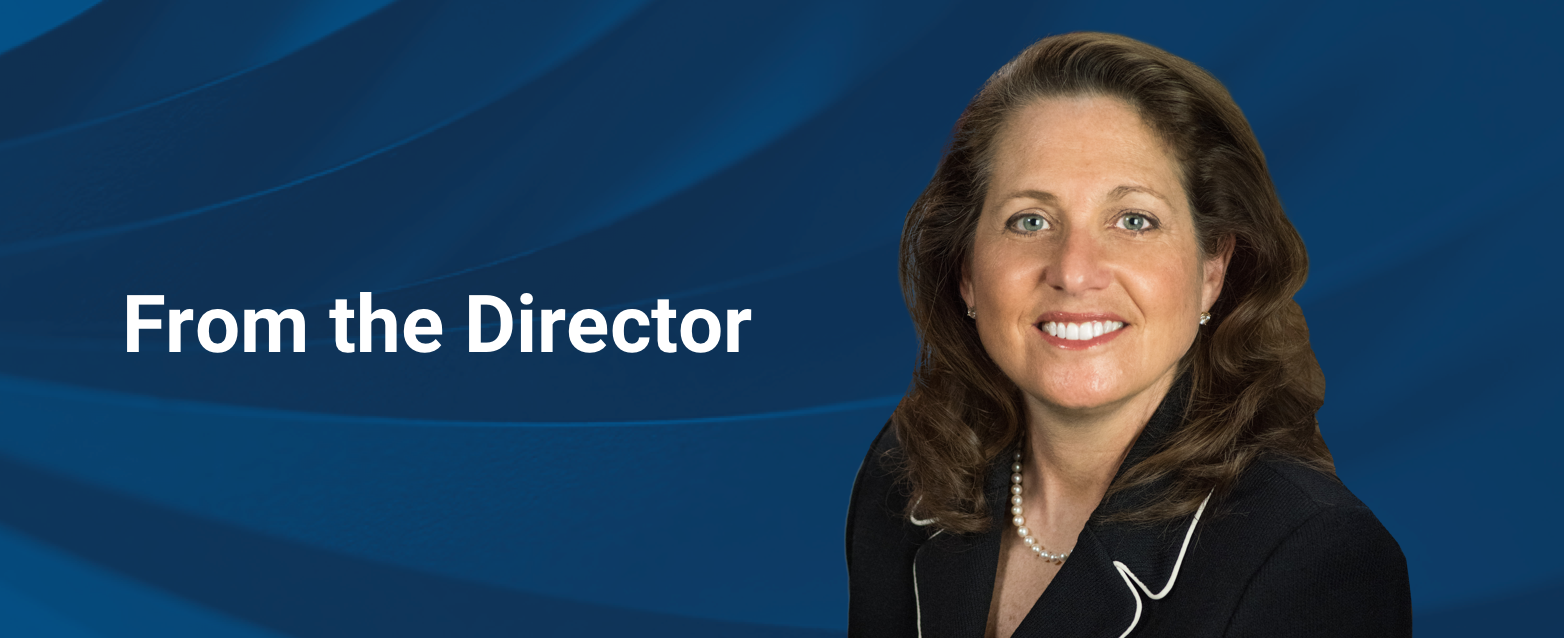By Laura L. Rogers
Laura L. Rogers is currently the acting Assistant Attorney General for the Office of Justice Programs.
It is an honor to serve as the Director of the SMART Office again. I rejoined the office on January 4, 2018. The growth and change in the office and in the implementation of SORNA since I left in 2009 is remarkable. When I departed the SMART Office at 11:50 a.m. January 20, 2009, the Tribe and Territory Sex Offender Registry System had gone live just minutes beforehand. I left relieved that the National Guidelines for Sex Offender Registration and Notification had been published and that the International Sex Offender Working Group was well established. The SMART Office had grown from a staff of one (me) to a handful of dedicated professionals. On the horizon was the massive task of substantial implementation for a country still trying to digest the Adam Walsh Child Protection and Safety Act/Sex Offender Registration and Notification Act and the National Guidelines.
Before the passage of SORNA, sex offender registration was inconsistent across the country. Some jurisdictions had functioning registration systems, while other jurisdictions had no registration laws in place. Jurisdictions without registration laws were literal safe havens for sex offenders, places where sex offenders fled to avoid registration and fly under the radar. Residents were unable to find out if their neighbors were sex offenders and make informed decisions for their families. States sharing borders had very different minimum standards, and much of Indian Country was without sex offender registration systems altogether.
Fast forward to today. Four of the five territories and 18 states have substantially implemented SORNA. But SORNA implementation is far more successful than what raw numbers indicate. SMART’s SORNA Implementation Progress Check, which summarizes what every state and territory has done to move closer to implementation, shows that six jurisdictions have only one or two issues left to reach substantial implementation. Several jurisdictions are in the process of passing new legislation that will bring them closer to substantial implementation. Several jurisdictions are implementing new international travel requirements as required by the supplemental guidelines of 2011. To be sure, there are issues, such as juvenile registration and listing offenders’ workplaces, that some jurisdictions oppose, but the SMART Office and regulatory guidance have found ways to accommodate jurisdictions’ positions that do not disserve the law. And, as always, the SMART Office continues to assist jurisdictions to work toward substantial implementation.
As of July 2018, 131 of 156 SORNA tribes have substantially implemented the law’s minimum standards. At the beginning of July, 147 tribes had fully functioning sex offender registries that linked to NSOPW.gov. The SMART Office, recognizing the vital need for tribes to have full access to federal criminal databases, implemented the Tribal Access Program. Currently, 41 tribes have TAP access, which allows tribal convictions, protective/stay away orders, DNA samples, fingerprints and other vital criminal data to be uploaded into federal databases. TAP tribes can also access criminal histories, foster care information, missing children information and victim protection orders. The list of TAP tribes continues to increase annually. This year, the SMART Office will fund the TAP program $2 million, along with COPS funding of $1.5 million.
The SMART Office also administers the Dru Sjodin National Sex Offender Public Website (NSOPW.gov), which serves as a vital resource to the public in locating sex offenders. NSOPW.gov is the most-up-to-date public national resource providing free information on where sex offenders live, work and attend school. NSOPW.gov is updated daily with information provided from all 50 states, five U.S. territories, nearly 150 Indian tribes and the District of Columbia as sex offenders fulfill their SORNA obligations to update their registration information locally. New information is updated on the state, territory or tribal registry, which is then available directly through NSOPW. With its single-search capability, one query for a particular name, for example, can immediately access all the public registries across the nation.
The SMART Office has also created an NSOPW mobile app, giving the public the same access to a national database of information from any mobile device. Public usage of the app has been well-received, with 147,700 downloads and 1.4 million searches since its launch in 2016. Specific information available for each query is based on the information provided by the registering jurisdiction.
The public’s desire for the ability to arm themselves with information seems insatiable. With nearly 4 million searches per month on NSOPW and its app, parents can protect their children by making safe decisions about what babysitters to hire or what school to attend and employers can make well-informed decisions about whom to hire. At the same time, survivors of sexual assault and abuse can maintain awareness of perpetrators’ locations.
Since its inception, the office has awarded over $110 million to support the Adam Walsh Act Implementation Program, with 264 grant awards to states and territories and 239 grant awards to tribes to implement and enhance sex offender registration and management.
Where the country could once be described as a patchwork quilt with respect to sex offender registration and notification ??? with some jurisdictions having a complete dearth of laws and an unmanageable mixture of other systems throughout the country ??? SORNA’s minimum standards are replacing this patchwork quilt with a solid color blanket. With more than 150 jurisdictions having substantially implemented SORNA, and many others close to substantial implementation, the goal of comprehensive registration and notification is drawing closer.
